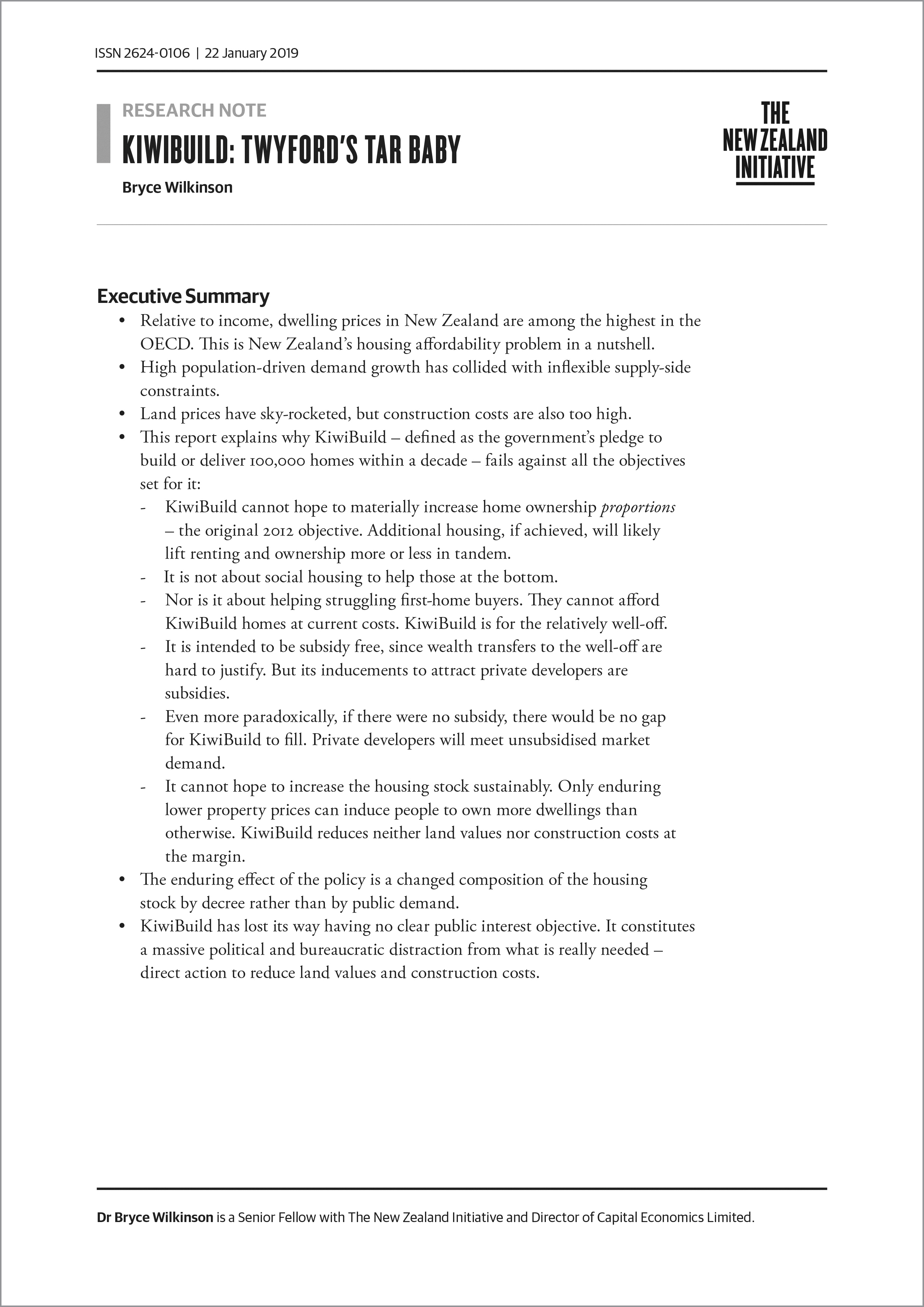Executive Summary
- Relative to income, dwelling prices in New Zealand are among the highest in the OECD. This is New Zealand’s housing affordability problem in a nutshell.
- High population-driven demand growth has collided with inflexible supply-side constraints.
- Land prices have sky-rocketed, but construction costs are also too high.
- This report explains why KiwiBuild – defined as the government’s pledge to build or deliver 100,000 homes within a decade – fails against all the objectives set for it:
- KiwiBuild cannot hope to materially increase home ownership proportions – the original 2012 objective. Additional housing, if achieved, will likely lift renting and ownership more or less in tandem.
- It is not about social housing to help those at the bottom.
- Nor is it about helping struggling first-home buyers. They cannot afford KiwiBuild homes at current costs. KiwiBuild is for the relatively well-off.
- It is intended to be subsidy free, since wealth transfers to the well-off are hard to justify. But its inducements to attract private developers are subsidies.
- Even more paradoxically, if there were no subsidy, there would be no gap for KiwiBuild to fill. Private developers will meet unsubsidised market demand.
- It cannot hope to increase the housing stock sustainably. Only enduring lower property prices can induce people to own more dwellings than otherwise. KiwiBuild reduces neither land values nor construction costs at the margin.
- The enduring effect of the policy is a changed composition of the housing stock by decree rather than by public demand.
- KiwiBuild is floundering having no clear public interest objective. It constitutes a massive political and bureaucratic distraction from what is really needed – direct action to reduce land values and construction costs.
About the author
Dr Bryce Wilkinson is a Senior Fellow with The New Zealand Initiative and Director of Capital Economics Limited.





